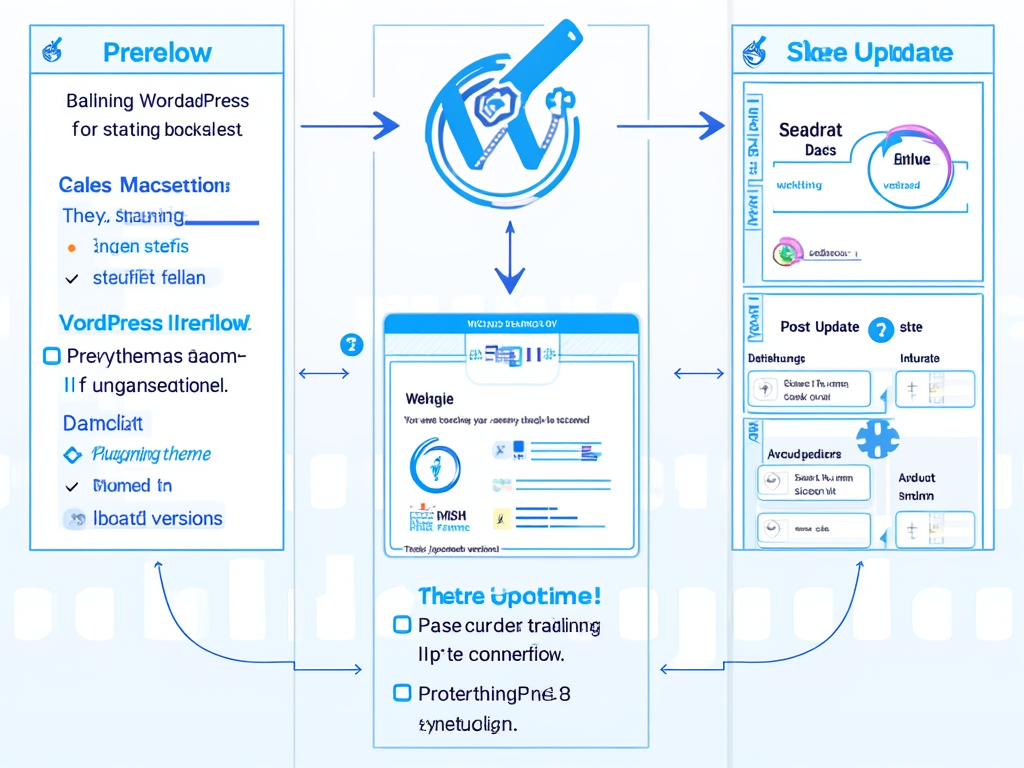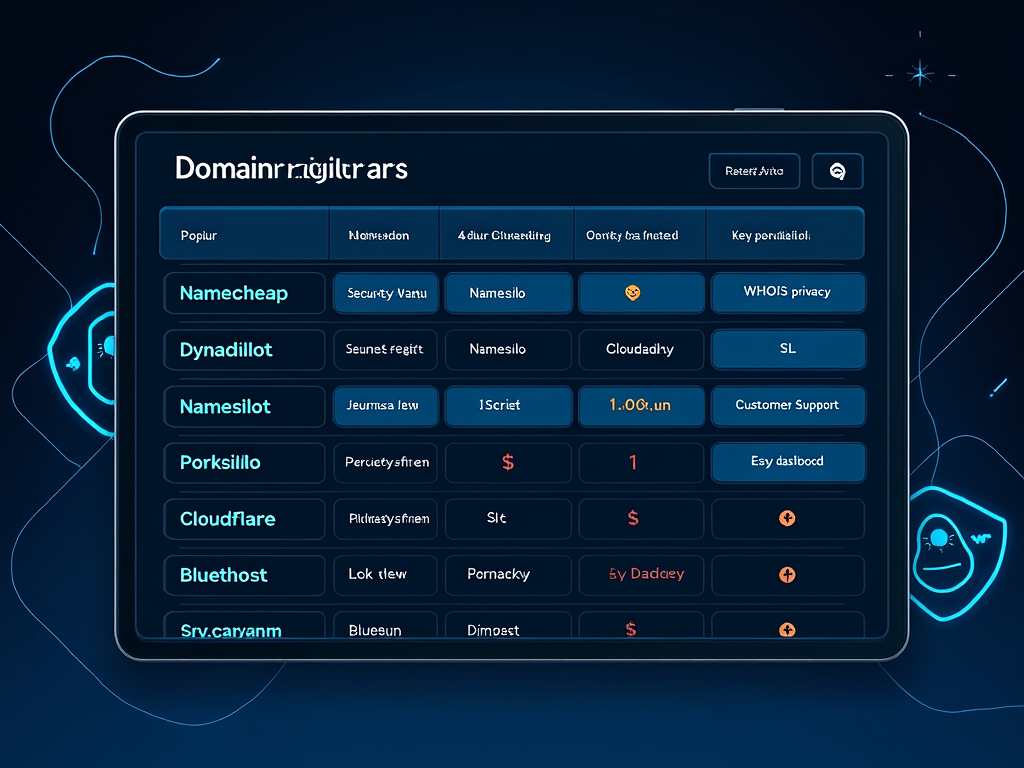Top security features to look for in a hosting plan
Introduction
Imagine pouring your heart and soul into a website, crafting every detail, only to leave it vulnerable to cyber threats. The reality is clear: in today's digital landscape, security is paramount. As we navigate this world of ones and zeros, avoiding potential pitfalls becomes essential. This guide dives deep into the vital security features that should be non-negotiable when selecting a reputable hosting plan. Understanding these features will empower you to keep your website and data safe while also projecting a trustworthy image to your users.
Main Section
1. Essential security features every hosting plan must have
A secure hosting environment is built upon a solid foundation of essential features designed to combat the cyber risks we face daily:
SSL Certificates: Picture this: a visitor lands on your site, and an ominous warning flashes on their screen. That’s the last thing you want! SSL (Secure Sockets Layer) acts like a protective shield while encrypting information shared between your website and its users, transforming HTTP into HTTPS. Secure browsing not only protects sensitive data but also instills trust with the padlock icon in the address bar. Many hosting plans offer free SSL certificates as a part of their package, ensuring that you don’t compromise on security right from the start.Learn more about SSL certificates.
Data Backups: Imagine spending hours creating compelling content, only to face catastrophic data loss. This is where regular, automated backups come into play. They act as a safety net, allowing swift recovery from breaches or failures. Opt for a hosting provider that offers frequent backups, ensuring you’ve always got a way to bounce back without losing everything in the blink of an eye.
Malware Detection and Removal: Cyber threats are ever-evolving, with malware lurking in the shadows, waiting for an opportunity to strike. A reputable host should provide robust malware scanning tools that continuously scour your site for malicious software, ensuring issues are detected and resolved before they escalate into full-blown crises. You don’t want to be the next headline for a data breach; proactive measures are crucial.
DDoS Protection: The irony of a website going down is that it often happens due to overwhelming traffic, but not the good kind. Distributed Denial of Service (DDoS) attacks flood your server with fake traffic, causing genuine visitors to encounter errors or, worse, an unavailable site. Adequate DDoS protection allows your website to maintain uptime during attacks, securing your online presence against malicious interruptions.Learn more about DDoS attacks.
Firewalls: Think of a firewall as your website's bouncer, determining who gets in and who’s left out. By monitoring and filtering incoming and outgoing traffic, firewalls safeguard against unauthorized access and nefarious actions. A Web Application Firewall (WAF) elevates this defense, specifically designed to filter malicious HTTP traffic directed at your web applications.
Network and Server Monitoring: Picture a vigilant security guard watching over your digital assets. Continuous network and server monitoring identifies unusual patterns or spikes in resource usage, alerting you to potential threats before they escalate. A hosting provider that prioritizes real-time monitoring ensures that your website remains safe and sound, allowing you to focus on growth rather than firefighting.
2. Advanced security features to enhance protection
While the essentials create a solid foundation, consider incorporating these advanced features for truly comprehensive protection:
Secure File Transfer Protocol (SFTP) and Secure Shell (SSH): Managing website files shouldn't resemble a high-stakes poker game. SFTP secures file transfers, encrypting sensitive data as it moves between your server and your device. SSH takes this a step further, providing encrypted remote command-line access that minimizes brute-force attack risks. If you’re serious about security, you should only accept encrypted protocols when dealing with your online presence.
Dedicated Application Pools (for Windows Hosting): Sharing resources on the same server could lead to trouble if another website becomes compromised. Here’s where dedicated application pools come into play. This feature ensures your processes remain isolated, protecting your site and data from the unintended consequences of neighboring sites’ vulnerabilities.
Physical Hardware Security: Digital security begins in the real world. It's easy to forget, but where your servers are physically located matters. Reputable hosting providers ensure that their data centers have top-tier security measures in place—controlled access, surveillance, and backup power are all crucial factors in protecting your digital assets.
Restricting User Access: You may trust your team, but how often do you consider the risks of having too many open doors? Limiting access permissions keeps sensitive areas restricted to only those who need it—an important step in preventing any potential mishaps or misconfigurations on your site.
Domain Name Security: Have you ever thought about the risks tied to your domain name? Features like Domain Name System Security Extensions (DNSSEC) prevent DNS hijacking and spoofing attacks, fortifying your domain against unauthorized manipulation and ensuring your users reach your genuine site every time.
3. Practical tips for choosing a secure hosting provider
Navigating the sea of hosting providers can feel overwhelming, but you don’t have to go alone. Here are some practical tips to keep in mind:
Look for 24/7 Managed Security and Support: Imagine having a team of experts watching over your site around the clock. Constant professional monitoring and support ensure that any emerging security issues are promptly addressed, reducing your risk of a major breach.
Check for Regular Security Audits and Updates: Just like cars need tune-ups, hosting environments require routine audits and software updates to patch vulnerabilities. Providers committed to continuous improvement will help keep your site secure, long after you’ve hit that “launch” button.
Evaluate the Hosting Type: Consider your unique needs when selecting a hosting type. Cloud hosting often provides more robust network isolation and scalable resources, while dedicated hosting offers full control over the environment. Assess which option aligns best with your security strategy.
Review Customer Testimonials and Independent Security Tests: Due diligence goes a long way. Research how providers have successfully addressed security issues in the past, gathering insights from customer testimonials and independent security evaluations.Learn how to evaluate hosting security.
Security isn’t just a checkbox on your hosting plan—it’s a lifeline for your online presence. As we gear up for the second part of this exploration, we unveil the lasting impact of focusing on these security features and how they shape the future of your digital assets.
FINDDOMAIN.GE (Internet services LLC) is a very interesting and rapidly developing IT company. The main directions are: web development, domain and web hosting. It also offers clients sub-services and outsourcing related to the main services.
BEST OFFERS:
Do you want to create your own company website or create your own online business on the Internet?
– WEB HOSTING
– DOMAIN REGISTRATION
– WEB DEVELOPMENT
– SITE BUILDER



Wrapping Up: The Importance of Investing in Security
When selecting a hosting plan, recognizing the importance of each security feature can dramatically shift your online strategy from reactionary to proactive. With threats evolving daily, neglecting these security measures can expose your website and users to unnecessary risks. However, by investing in a hosting provider that prioritizes security, you can build a digital fortress that not only stands against potential threats but also instills confidence in your visitors.
4. Monitoring and Response: Key Elements to Consider
Secure hosting isn’t just about implementing particular features; it’s also about how effectively you can monitor and respond to ongoing threats. Here are key elements involved in achieving this:
Security Incident Response Plans: An effective security response plan is like having an emergency protocol in place. It should include clear guidelines on what to do in the event of a breach, detailing roles and responsibilities within your team. Having a well-crafted plan ready can greatly reduce damage and downtime in a crisis.
Incident Reporting Tools: Look for hosting solutions that offer built-in reporting tools. These tools should allow you to track breaches and vulnerabilities efficiently, giving you insights into areas that may require your attention. Understanding the nature of the threat is the first step toward advancing your website’s defenses.
5. Regular Communication with Your Hosting Provider
The relationship you cultivate with your hosting provider should be dynamic and communicative. Here are a few strategies to foster this partnership:
Stay Informed: Regularly update yourself and your team on the latest security best practices and threats. Hosting companies often publish updates and newsletters with vital security information—taking time to read these can help you stay ahead of the curve.Learn more about web hosting.
Engage with Support: Don’t hesitate to reach out to customer support with questions or concerns. A responsive hosting provider will have an accessible support system ready to assist you, providing necessary guidance when security issues arise.
6. Focusing on User Education
While the hosting provider plays a critical role in safeguarding data, user education is equally important. Your team can significantly contribute to maintaining security through various practical steps:
Implement Strong Password Policies: Weak passwords are low-hanging fruit for cybercriminals. Educate your team on best practices, such as using complex passwords, enabling two-factor authentication, and changing passwords regularly, to reduce vulnerabilities.
Train for Awareness: Regular training sessions can empower your team to identify phishing attempts, malicious links, and other common threats. An informed user base is one of the largest defense mechanisms against cyber attacks.
The Road Ahead: Future-Proofing Your Hosting Plan
As the landscape of online threats continues to evolve, so must your approach to hosting security. It’s crucial to continuously reassess your hosting plan and security setups—what works today might not suffice tomorrow. Principles to focus on include:
Stay Updated on Security Trends: Regularly review industry reports and updates. For example, security technologies like artificial intelligence (AI) and machine learning are rapidly advancing, and your hosting provider should adapt to these innovations as they become necessary.
Invest in Advanced Security Solutions: Consider the possibilities of incorporating advanced security solutions, such as content delivery networks (CDNs) that help absorb traffic spikes during DDoS attacks, or identity and access management, which provides robust control over user access.
Collaborate with Security Experts: Engage with cybersecurity professionals to audit your hosting environment and highlight any potential weaknesses. Their expertise can elevate your site’s defenses to meet the latest standards.
Conclusion
In the bustling online arena, safeguarding your website is not just a matter of security; it's about trust, reliability, and peace of mind. Selecting the right hosting plan is the bedrock upon which your online presence stands. By prioritizing essential and advanced security features, fostering communication with your hosting provider, and investing in education for your team, you set the stage for a strong, resilient digital environment.
Every step you take in enhancing your hosting security resonates beyond just your site—it echoes trust, integrity, and responsibility to your users. As threats become ever more sophisticated, your vigilance will be your greatest ally in ensuring a safe online experience for all.
Relevant Video Links
- Top 5 Security Features for Your Hosting
- How to Set Up SSL For Your Website
- Web Hosting Security Best Practices
References
How to evaluate hosting security
BEST OFFERS:
Do you want to create your own company website or create your own online business on the Internet?
– WEB HOSTING
– DOMAIN REGISTRATION
– WEB DEVELOPMENT
– SITE BUILDER








Leave feedback about this